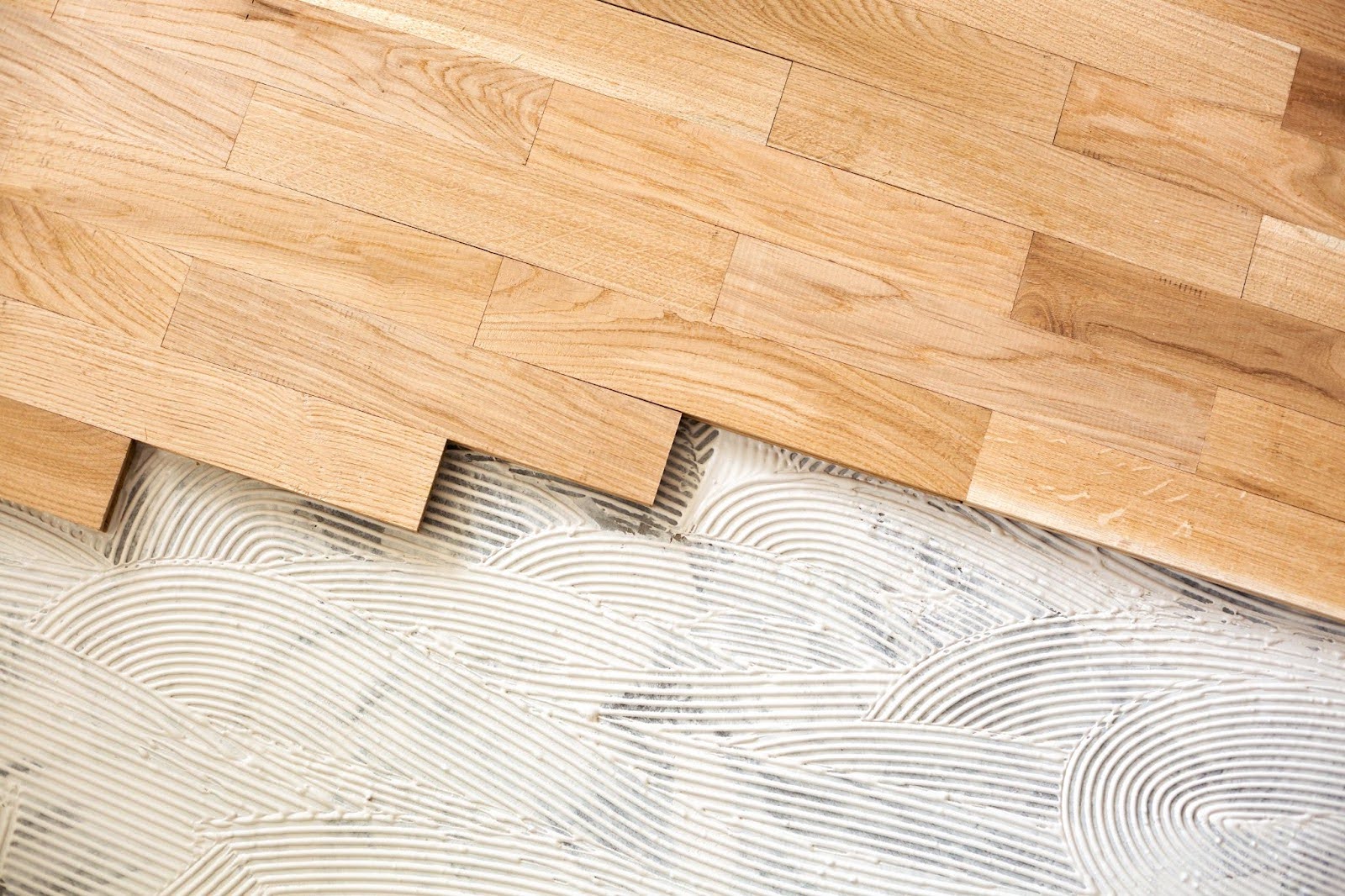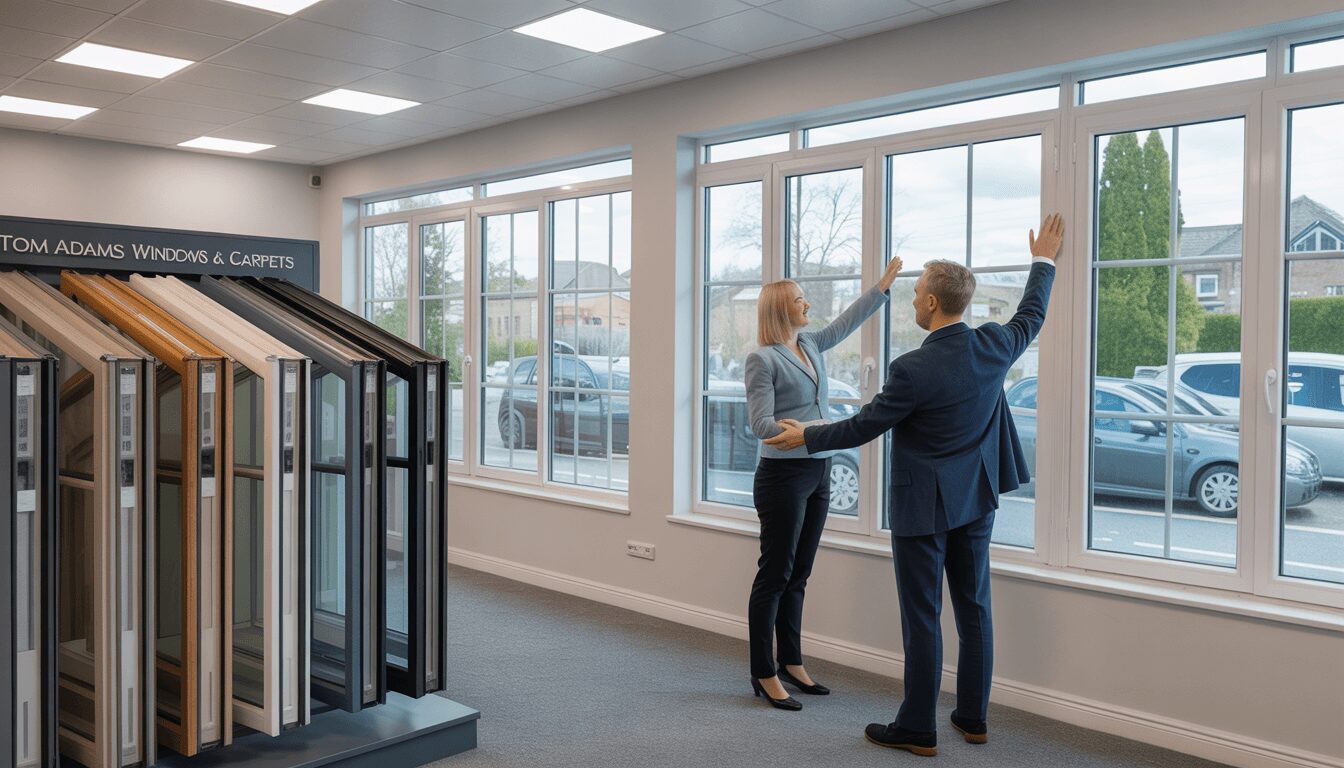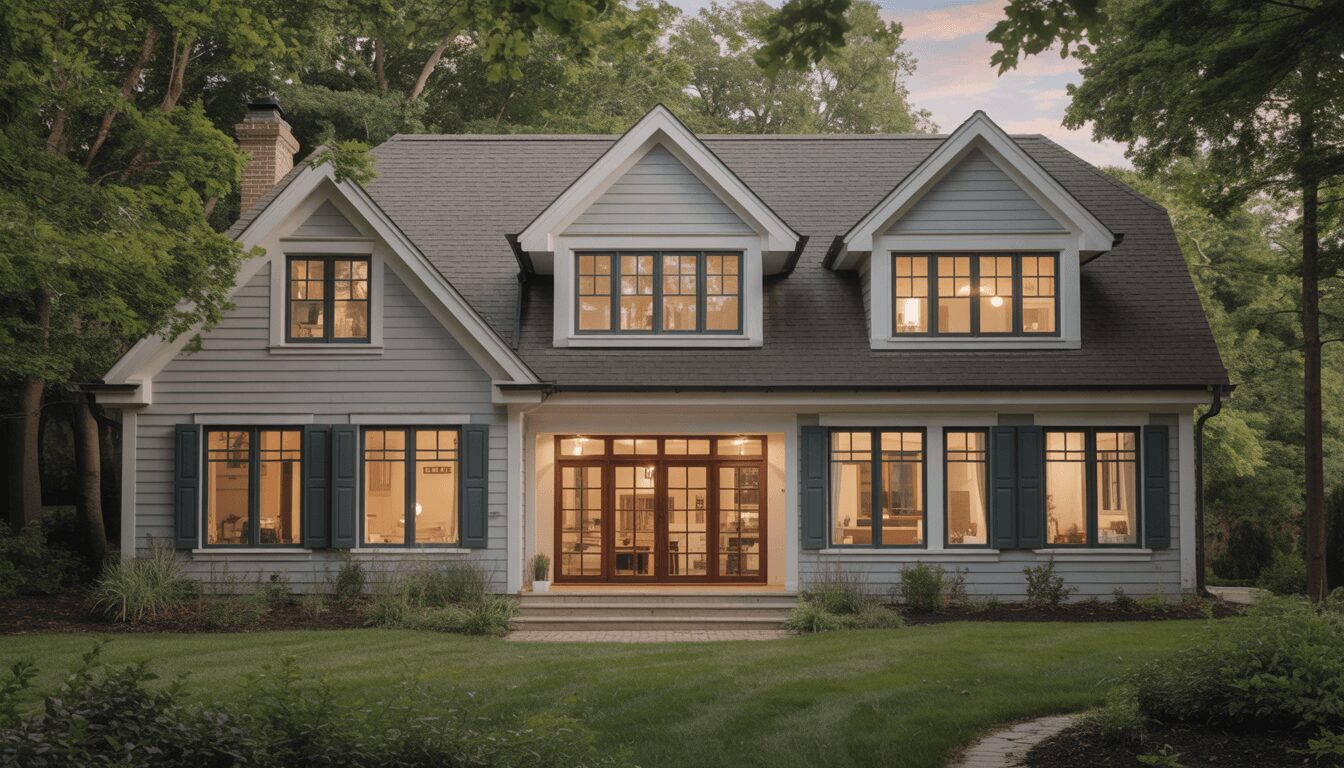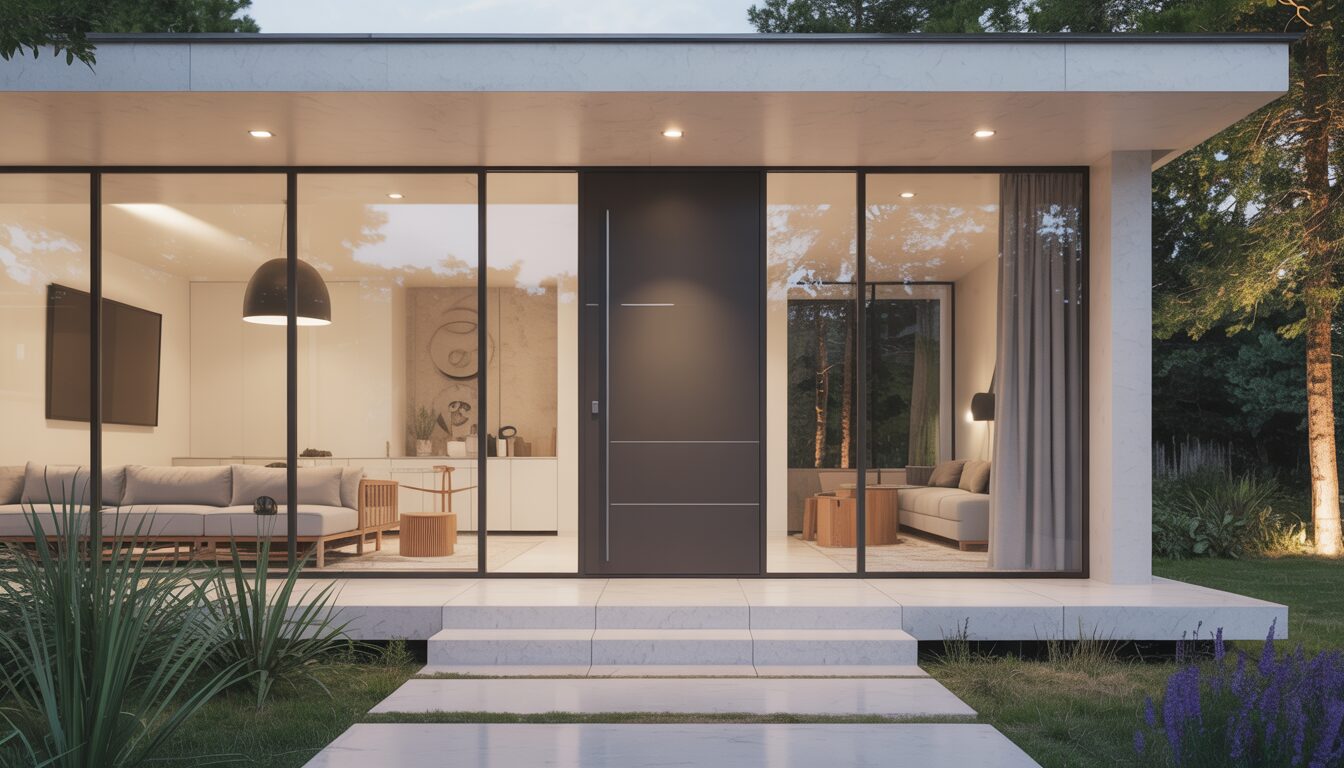When we think about the construction of our homes, we often focus on the visible elements, such as the flooring, walls, and roof. But beneath the layers that catch our eye lies an unsung hero: the subfloor. This foundation layer plays a pivotal role in the comfort, aesthetics, and durability of our living spaces. But exactly what is a subfloor, and why is it so important?
The Role of the Subfloor in Your Home
The subfloor forms a critical part of your home’s architecture. There are many subfloors, from concrete to wood. This blog will deal with the many types of subfloors.Here’s why it’s essential to have the right subfloor:
- Stability and Support: The subfloor provides a stable base for the floor covering—be it carpet, hardwood, or tile—that you see and walk on. It’s the layer that ensures your floor remains even and secure.
- Insulation and Protection: Besides adding structural integrity, the subfloor acts as a barrier, protecting against moisture from below and contributing to the overall thermal insulation of your home.
- A Quiet and Comfortable Home: A well-installed subfloor also plays a role in sound insulation, keeping foot traffic noises to a minimum and adding to the quietness of a home.
At Tom Adams Windows & Carpets, understanding these roles is central to our service. We take great care to ensure that your subfloor is not only of the highest quality but also that it’s installed with the expertise necessary for long-lasting support and comfort.
Materials: What is Subfloor Made Of?
When considering the makeup of a home’s flooring, you might ask yourself, “what is subfloor made of?” At its core, the subfloor is the needed foundation to support the top layer of flooring—whether it be carpet, hardwood, or tile—and it serves as a critical component in your home’s construction.
Commonly, subfloors are constructed from materials such as:
- Plywood: A popular choice for its durability and strength, plywood is made by layering thin sheets of wood veneer in cross-grain patterns and bonding them under heat and pressure. (Most likely the size is ¾” thick.)
- Advantages: It’s strong, resists moisture better than other materials, and is relatively easy to install.
- Disadvantages: It can be more expensive than alternative materials and may warp or delaminate if exposed to excessive moisture and sun over time.
- Oriented Strand Board (OSB): OSB is composed of pressed wood strands or flakes that are coated with adhesive and then compressed. (Most likely the size is ¾” thick.)
- Advantages: Typically less expensive than plywood, it has similar strength and has become increasingly popular in residential construction.
- Disadvantages: It’s heavier than plywood, and if the protective coating is compromised, it can swell more significantly when exposed to moisture.
- Particle Board: Particle Board is composed of pressed wood dust and small chips along with a resin and is compressed with low pressure. (Most likely the size is ¾” thick.)
- Advantages: Typically less expensive than plywood, it has similar strength and has become increasingly popular in residential construction because of costs.
- Disadvantages: Compromised strength and easily swells with moisture. No flooring manufacturer will allow flooring to be nailed or stapled on Particle board for its inability to hold fasteners.

Appearance and Characteristics: What Does Subfloor Look Like?
So, what does a subfloor look like? If you’ve had a chance to see a subfloor, you might have noticed that it’s quite different from the polished finish of top-flooring materials. Here’s what to look for:
- Color: Typically, subfloors exhibit a woody brown hue, though the exact shade can vary between materials like plywood (lighter brown) and OSB (darker, with a multi-tonal, textured appearance).
- Texture: A subfloor will have a more rugged, unfinished texture, especially when compared to your final flooring choice. It’s not uncommon to see wood grains, fibers, or the patterned matrix of wood flakes within an OSB board.
- Identifying Marks: Manufacturers may stamp the subfloor with codes, symbols, or letters that denote its grade, moisture rating, or type of the material.
In practice, if your top flooring has been removed or if you’re in the process of installing flooring, the subfloor may be visible. Most subfloors need a smooth plywood called Luan as a covering of wood subfloors in order to provide a more level, smooth underlayment, hide rough edges, peaked seams or raised nails or seams, prior to any flooring installation.
It looks raw and unfinished and would be rough to the touch. It should feel solid and secure—if it doesn’t, this could indicate potential damage that might need attention from professionals like those at Tom Adams Windows & Carpets, who understand the characteristics and importance of a good wood subfloor.
Signs of Subfloor Damage
Unfortunately, subfloors can be out of sight and out of mind until signs of damage begin to appear. Here, we’ll explore some telltale signs that your subfloor may need attention:
- Squeaky Floors: If you’re walking across the room and your floor starts making noise, this could be an indication that the subfloor is not securely attached to the floor joists below, or warping has raised edges and nails, which will cause squeaks.
- Uneven Flooring: When the surface of your floor becomes uneven or you feel soft spots as you walk, it may be because the subfloor has become damaged and is no longer providing the necessary support. Your floor may give a spongy feel.
- Visible Wear or Damage: Areas where the floor covering has been removed, exposing the subfloor, may show signs of water damage, rot, or mold. These can look like dark patches or areas that are crumbling.
- Odors and Mold: A musty smell can be a sign of mold, which often grows in damp environments like a damaged subfloor.
- Bouncing or Movability: If your floor feels bouncy or moves under your weight, this is an immediate concern. A good subfloor should feel solid and immovable.
- Raised Beams/ Settlement: If you have high peaks and low valleys in your subfloor, your house is settling and causing your beams to be higher and giving unevenness in your subfloor. To fix the problem, you need to raise joists in order to give a correct feel and permanent fix to the issue.
Ignoring these signs can lead to more extensive damage and costly repairs in the future. That’s why Tom Adams Windows & Carpets places such importance on thorough inspections and timely repairs. Their team can assess any subfloor issues you’re experiencing and address them before they lead to more significant problems.
Upgrading Your Subfloor
There are times when repairing a subfloor isn’t enough, and a full upgrade becomes necessary. Here are some situations where you might consider subfloor replacement:
- Extensive Water Damage: If a leak has gone unnoticed for a significant time, the damage might be too severe for a simple fix.
- Remodeling or Restoration Projects: When you’re updating an older home or changing the floor layout, it’s a good opportunity to replace an outdated subfloor with something sturdier.
- Installation of New Types of Flooring: Certain types of new flooring, like hardwood or tile, require a strong, level subfloor to prevent cracking or creaking.
Enhancing Your Home with Quality Flooring
Choosing the right flooring for your home is a decision that goes hand-in-hand with subfloor upgrades. The right combination can transform your living space, offering both beauty and long-lasting support. Tom Adams Windows & Carpets guides you through the entire process, ensuring that your home stands on solid ground. Here’s what you can gain from this dual approach:
- Comfort: Your chosen flooring material is the key player in how comfortable your floor will feel beneath your feet.
- Energy Efficiency and Acoustics: High-quality flooring combined with a quality subfloor can significantly insulate your home and improve the acoustics, reducing energy costs and noise levels.
- Aesthetic Appeal: With a firm base, your decorative flooring will look better and remain true to its design longer.
Whether you’re eyeing hardwood for its timeless elegance, tile for its sleek look, or carpet for cozy comfort, your flooring choice should complement a sound subfloor.
Why Choose Tom Adams Windows & Carpets for Your Subfloor Needs
When it comes to subfloor installation, it’s best to rely on professionals who know their trade inside out. Here’s what makes Tom Adams Windows & Carpets stand out for your subfloor projects:
- Expertise: Decades of experience mean your home is in skilled hands.
- Materials: They use only top-grade materials to ensure lasting durability.
- Satisfaction: With a steadfast commitment to customer happiness, they maintain a 97% positive rating.
- Local Understanding: A community-focused business, they have a keen grasp of the local homes and environment.
- Value: Their price guarantee and flexible financing options make quality accessible.
Good subfloors make good homes, and with Tom Adams Windows & Carpets, you’re choosing a partner that values your home as much as you do. So why wait? Lay the groundwork for a beautiful living space today and contact us for a free estimate.







